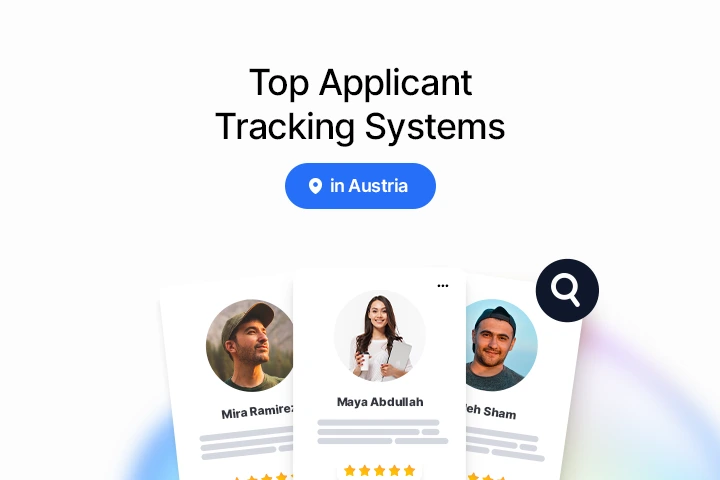Sourcing talent in Saudi Arabia presents several challenges for recruiters, from skill mismatches to recruitment delays and nationalization quotas. The evolving labor market dynamics, including the impact of Saudization policies, further complicate recruitment efforts.
Based on insights from hundreds of hiring campaigns across Saudi Arabia on the Qureos platform, this article sheds light on the key hurdles faced by recruiters in the region. It will explore the difficulties in finding qualified candidates, the impact of quotas, and practical insights into overcoming these challenges.
Limited Access to Qualified Candidates
One of the major challenges faced by recruiters in Saudi Arabia is the lack of qualified talent. Companies often receive an overwhelming number of junior profiles, while struggling to find skilled mid-to-senior level candidates. The job market often presents a mismatch between job descriptions and the talent pool available.
Challenges in sourcing skilled talent
- Overabundance of junior profiles: Recruiters often struggle to fill mid-to-senior level roles, while junior candidates flood the market.
- Mismatch between job requirements and available talent: Job descriptions demand specialized skills, but these aren’t readily available in the local market.
Qureos Insight
Many recruiters report that traditional job boards provide quantity over quality, making it difficult to find qualified candidates who meet the exact needs of the job.
Explore more: Employment of Women and Juveniles in Saudi Arabia
Lack of Verified Candidate Data
A significant issue in Saudi Arabia is the lack of verified candidate data. Many candidates submit outdated CVs, and LinkedIn profiles may not reflect their current skills or job status. This leaves recruiters with a large amount of unverified data, making it challenging to assess a candidate's true capabilities.
Challenges with candidate data
- Outdated CVs and profiles: Many candidates fail to update their professional details on platforms like LinkedIn, leading to outdated information.
- Inaccurate experience: Some candidates exaggerate their experience, making it harder for recruiters to verify qualifications.
Qureos Perspective
Qureos leverages AI to tag candidate intent, job readiness, and availability, ensuring recruiters have access to only those candidates who are qualified and interested in the role.
Explore more: Penalties in Saudi Arabia
Slow & Manual Sourcing Workflows
Recruiters in Saudi Arabia often rely on manual processes, such as using spreadsheets, emails, and cold outreach, which leads to delays and inefficiencies. Without automation or advanced filtering, these processes make it difficult for recruiters to source and screen candidates quickly.
Challenges with manual sourcing
- Over-reliance on spreadsheets and emails: Much time is spent managing candidate lists manually, leading to inefficiency and errors.
- Lack of automation: Without automated filters, recruiters waste time on non-responsive candidates or candidates who don’t meet the job criteria.
Qureos Observation
Without the use of AI or smart filtering, 60–70% of a recruiter’s time is spent on administrative tasks, including qualifying candidates.
Explore more: Payroll Labor Law in Saudi Arabia
Nationalization Policies and Quota Pressures
Saudization is a key challenge for employers in Saudi Arabia. The nationalization policy mandates a certain percentage of Saudi nationals in the workforce, particularly in government contracts and other key sectors. This policy creates a significant hurdle for recruiters trying to balance skill needs with nationalization quotas.
Challenges with nationalization policies
- Quota-based hiring: Recruiters must ensure that they meet Saudization goals while still fulfilling the technical and skill needs of the job.
- Limited flexibility: Nationalization policies often limit the pool of qualified candidates, making it challenging to fill senior or highly specialized roles.
Qureos Solution
Qureos offers filters by nationality, enabling recruiters to meet nationalization requirements without compromising on the quality of talent.
Explore more: Visa and Work Permit in Saudi Arabia
Market Mismatch Between Skills and Job Requirements
There is a noticeable mismatch in Saudi Arabia’s market between the skills candidates offer and the skills employers need. Many candidates hold degrees but lack the job-ready skills required for certain specialized roles, leading to recruitment delays.
Challenges with skill mismatches
- Surplus of degrees, lack of practical skills: Many applicants hold degrees, but they lack the certifications and practical experience required for roles in engineering, IT, and finance.
- Missed core requirements: Many applications miss essential requirements, such as industry-specific tools or experience with particular software platforms.
Qureos Feedback Loop
Qureos’s AI ranks candidates based on real-world skill signals rather than just looking at educational qualifications. This helps employers find candidates with practical experience rather than just theoretical knowledge.
Explore more: Employment Contract in KSA
Ghosting and Drop-Offs After Outreach
Ghosting is a common problem in Saudi Arabia, particularly for high-demand fields such as IT, engineering, and healthcare. Candidates may disappear after initial outreach or interviews, or they may accept counteroffers, leaving recruiters with wasted time and unfilled roles.
Challenges with ghosting and drop-offs
- Candidates disappearing mid-process: After initial contact or interviews, candidates may fail to respond or simply disappear.
- Counteroffers: In highly competitive sectors, candidates may accept counteroffers or switch to other companies, leaving hiring teams with vacant positions.
Qureos Advantage
With intent scoring and video replies, Qureos helps reduce ghosting by identifying only those candidates who are actively interested and available for new opportunities.
Explore more: End of Employment Policy in Saudi Arabia
Overdependence on Job Boards and Referrals
In Saudi Arabia, many recruitment teams still rely heavily on job boards and referrals for sourcing candidates. While these methods can work for certain roles, they tend to attract low-intent candidates and have limited reach, especially for more specialized roles across multiple regions.
Challenges with job boards and referrals
- Job boards tend to attract low-intent candidates, leading to unqualified applications that waste recruiters' time.
- Referrals provide limited reach, especially when hiring for multiple positions or regions.
Qureos Insight
After exhausting traditional sources, many recruiters turn to Qureos, looking for precise, data-backed hiring solutions that help them fill roles faster and more efficiently.
Explore more: Compensation and benefits in KSA
Conclusion
Sourcing talent in Saudi Arabia is complex. From skill mismatches and manual workflows to ghosting and quota pressures, the recruitment process can be filled with roadblocks. However, by leveraging tools like Qureos, recruiters can streamline the process and overcome these challenges. With AI-powered filtering, verified candidate data, and real-time video insights, Qureos makes the hiring process faster, more efficient, and more aligned with client expectations.




